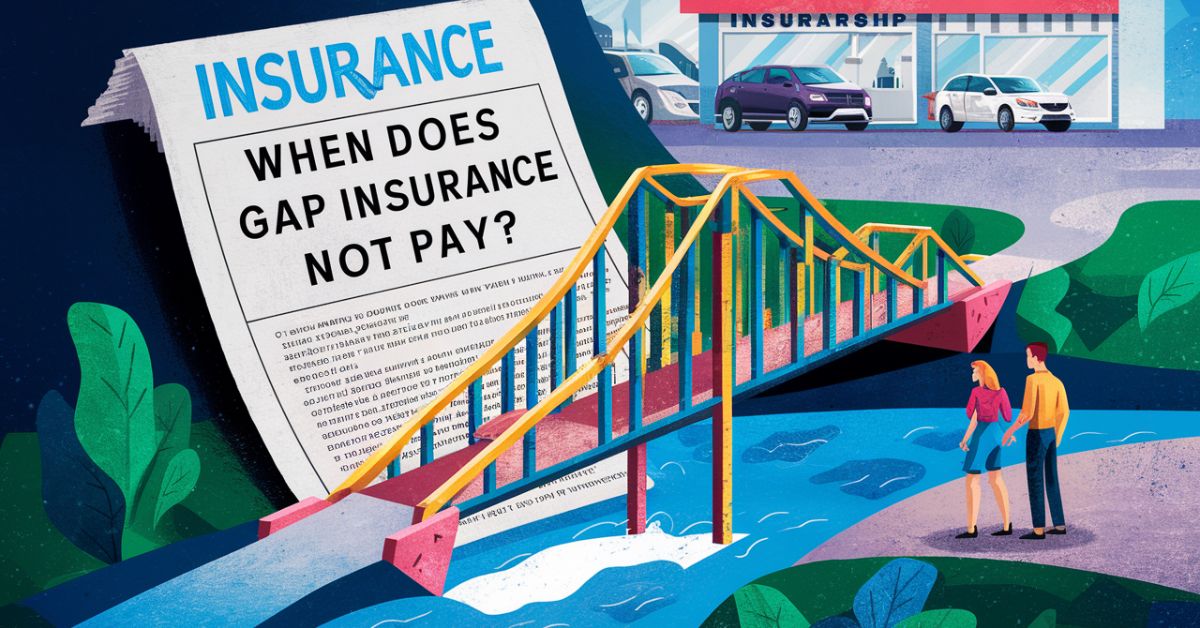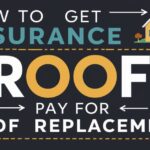Gap insurance is a special type of car coverage. It helps if your car is totaled or stolen. It pays the difference between what you owe and what your car is worth. This can be a big help in certain situations.
But gap insurance doesn’t always pay. There are times when it won’t cover you. This can be a problem if you’re not ready for it. It’s important to understand these situations.
We’ll look at when it doesn’t pay. We’ll also see how it works and when it’s good to have. By the end, you’ll know if it’s right for you. This knowledge can help you make better decisions about your car insurance.
What Is Gap Insurance?
Gap insurance is extra car coverage. It stands for “Guaranteed Asset Protection”. It helps if your car is totaled or stolen. It pays the difference between your loan and your car’s worth. This can be very helpful in certain situations.
Cars lose value fast. You might owe more than your car is worth. If your car is totaled, regular insurance only pays its current worth. You might still owe money on a car you can’t drive. This is where gap insurance comes in handy.
Gap insurance helps here. It pays off the rest of your loan. This way, you don’t pay for a car you no longer have. It can be a big help for many car owners. It gives peace of mind to people who are worried about owing money on a totaled car.
When Gap Insurance Doesn’t Pay?
Gap insurance is helpful, but it doesn’t cover everything. There are times when it won’t pay out. It’s good to know these cases. Understanding these situations can help you avoid surprises later.
It doesn’t pay if your car isn’t totaled. If your car can be fixed, gap insurance won’t help. It only pays if your car is a total loss. This means the car is too damaged to fix or would cost too much to repair. Regular car insurance covers repairs in most cases.
It also doesn’t pay if you don’t have full coverage car insurance. Gap insurance works with your regular car insurance. If you don’t have full coverage, it won’t pay. Keep your regular insurance up to date. This ensures your if will work when you need it.
Gap insurance doesn’t cover everything related to your car. It won’t pay for things like missed payments or mechanical problems. It’s only for situations where your car is totaled or stolen. Knowing this can help you plan your car insurance better.
Common Misunderstandings About Gap Insurance
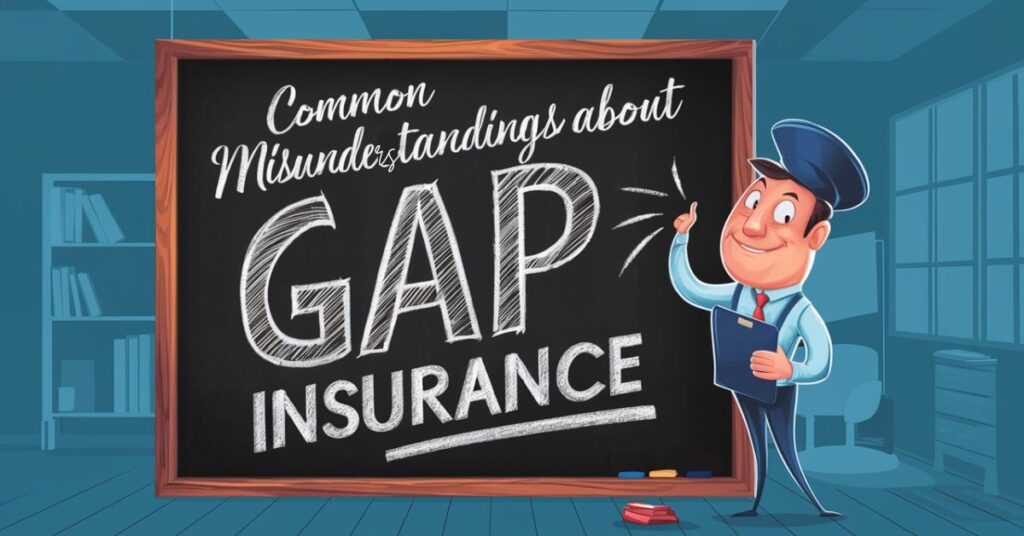
Many people don’t fully understand it. This can lead to wrong ideas about what it covers. Let’s clear up some common mix-ups. Understanding these can help you make better decisions about your insurance.
Some think it covers car repairs. This isn’t true. It only pays if your car is totaled or stolen. It doesn’t help with regular repairs or maintenance. You need regular car insurance for those things. Knowing this can save you from expecting gap insurance to help with repairs.
Understanding these common misunderstandings can help you use it correctly. It’s important to know what it does and doesn’t cover. This knowledge can help you make better decisions about your car insurance needs.
Types of Gap Insurance
There are different types of gap insurance. Each type works a bit differently. Let’s look at the main types. Understanding these can help you choose the right one for your needs.
1. Finance Gap Insurance
This type pays off your car loan. If your car is totaled, it pays the difference between what you owe and what your car is worth. This helps you avoid owing money on a car you can’t drive. It’s good for people who are worried about being left with a loan after their car is totaled.
2. Return to Invoice Gap Insurance
This type pays the difference between what you paid for your car and what your insurance pays. It helps you get back the full amount you spent on your car. This can be helpful if your car loses value quickly. It’s good for people who want to protect their initial investment in the car.
3. Vehicle Replacement Gap Insurance
This type helps you buy a new car similar to your old one. It pays the difference between your insurance payout and the cost of a new, similar car. This can be helpful if car prices have gone up since you bought your car. It’s good for people who want to make sure they can replace their car with a similar model.
4. Lease Gap Insurance
This type is for leased cars. It pays the difference between what you owe on your lease and what the car is worth. This can help if you total a leased car and owe more than it’s worth. It’s important for people who lease their cars and want to avoid owing money if the car is totaled.
5. Contract Hire Gap Insurance
This is for people who hire cars long-term. It pays any fees you might owe if the car is totaled before the contract ends. This can save you from owning a lot of money on a car you can’t use anymore. It’s good for businesses or individuals who use long-term car hire.
Read this article: How To Get Insurance To Pay For Roof Replacement
How Gap Insurance Works?
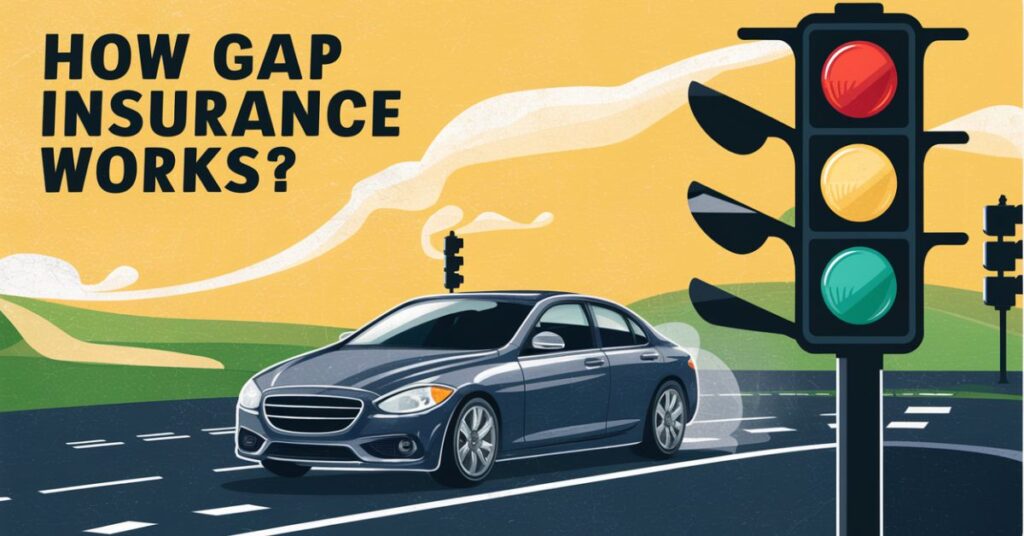
Gap insurance works with your regular car insurance. How it typically works if your car is totaled or stolen. Understanding this process can help you know what to expect if you ever need to use your gap insurance.
First, your regular car insurance pays out. They pay what your car is worth at the time it was totaled or stolen. This is usually less than what you owe on your loan. This is where it comes in. It fills the “gap” between these two amounts.
It pays the difference between what your regular insurance paid and what you still owe. This pays off your loan completely. You don’t end up owing money on a car you can’t drive anymore. This can be a big relief in a stressful situation.
Cost of Gap Insurance
The cost of gap insurance can vary. It depends on several factors. Let’s look at what affects the price. Understanding these factors can help you estimate how much you might pay for it.
| Factor | How It Affects Cost |
| Car Value | More expensive cars usually cost more to insure |
| Loan Amount | Larger loans often mean higher costs |
| Car Age | Newer cars typically cost more to insure |
| Driving History | A clean record can mean lower costs |
| Insurance Provider | Different providers charge different amounts |
When Gap Insurance Is Worth It?
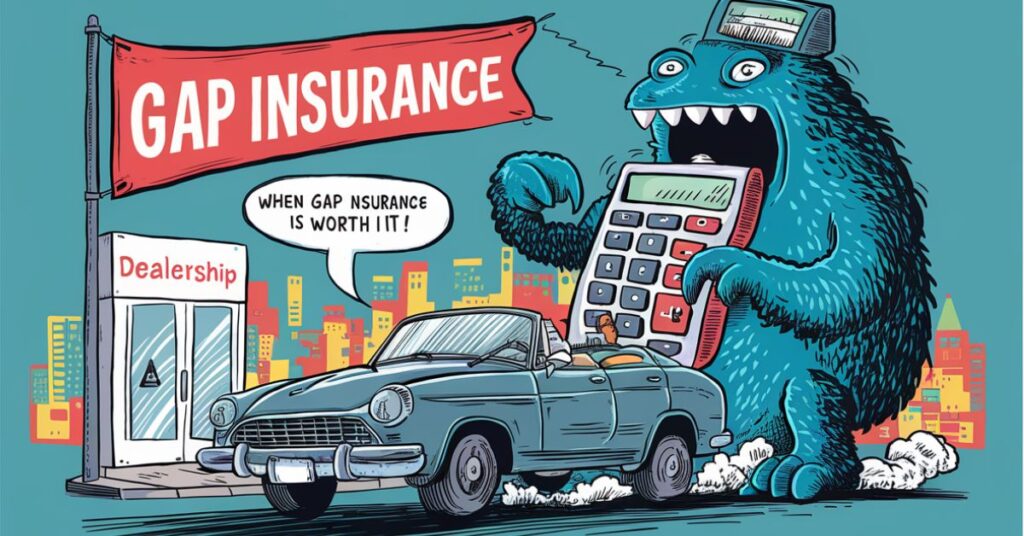
Gap insurance can be very helpful in some situations. It’s worth thinking about in certain cases. Understanding these situations can help you decide if it is right for you.
It’s also worth it if you have a long-term car loan. Long loans mean it takes longer to build equity in your car. If your car is totaled early in the loan, you might owe more than it’s worth. it can protect you from this situation.
If you drive a lot, it could be helpful. Cars that are driven more lose value faster. This means you’re more likely to owe more than your car is worth if it’s totaled. It can provide protection in this case.
When Gap Insurance Isn’t Necessary?
There are times when you might not need gap insurance. It’s important to know when it’s not necessary. This can help you avoid paying for coverage you don’t need.
If you made a large down payment on your car, you might not need it. Large down payments mean you owe less on your loan compared to what your car is worth. You’re less likely to be “upside down” on your loan. In this case, it might not be necessary.
It might not be necessary if you have a short-term car loan. Short loans mean you build equity in your car faster. You’re less likely to owe more than your car is worth. If you pay off your loan quickly, you might not need it.
New Cars and Gap Insurance
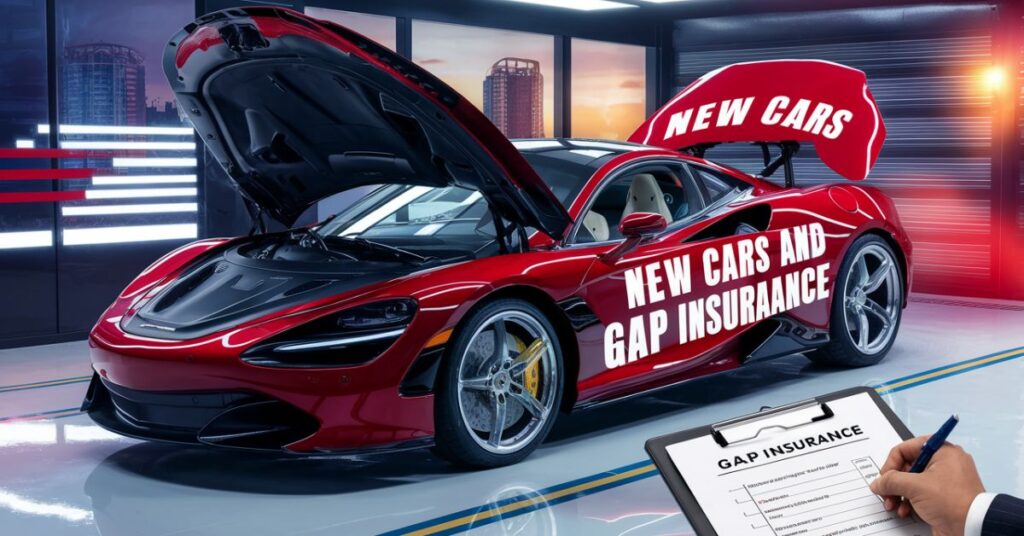
New cars often come with special insurance rules. This can affect whether you need gap insurance.
Many car insurance policies offer new car replacement coverage. This is for cars less than a year old. If your new car is totaled, they replace it with a brand new car. This means you might not need it in the first year.
New cars lose value quickly. After the first year, it might be a good idea. Your car’s value drops faster than you pay off your loan. This means you could owe more than your car is worth.
Used Cars and Gap Insurance
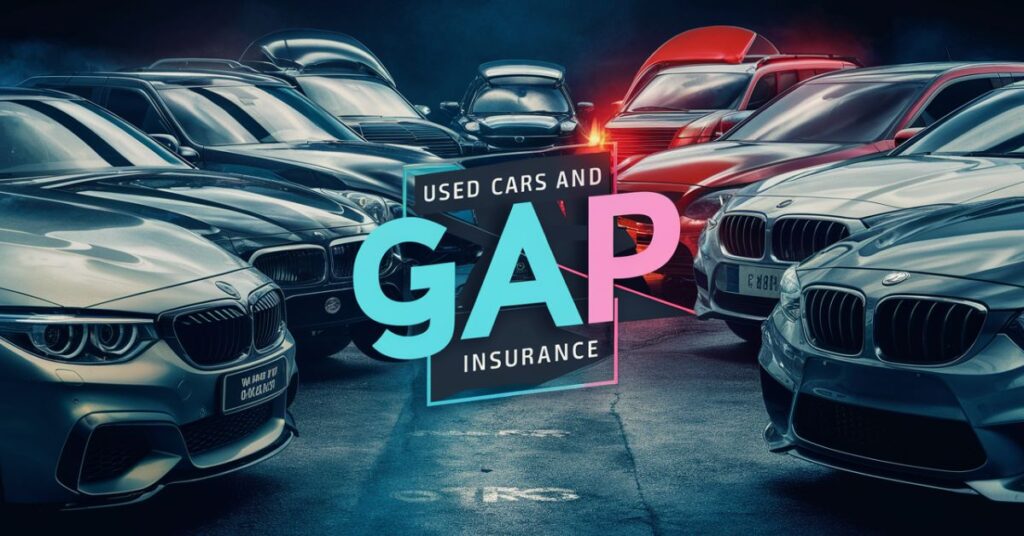
Used cars are different from new cars when it comes to gap insurance. What to consider for used cars. Used cars have already lost some value. This means you’re less likely to owe more than the car is worth. You might not need it for a used car.
If you’re buying an expensive used car, it might be worth it. Expensive cars can still lose a lot of value. It can protect you if you owe more than the car is worth.
Some used car loans have high interest rates. This can mean you owe more than the car is worth for longer. In this case, it might be a good idea.
How to Get Gap Insurance?
Getting gap insurance is usually easy. There are a few ways to do it.
- You can buy it from your car dealer
- Many car insurance companies offer gap insurance
- Some banks and credit unions sell gap insurance
- There are companies that specialize in gap insurance
- You can sometimes add gap insurance to an existing car loan
Final Words
Gap insurance can be very helpful in the right situations. It protects you if your car is totaled and you owe more than it’s worth. But it doesn’t cover everything. There are times when it won’t pay out.
It’s important to understand what it covers and when it doesn’t pay. This helps you decide if it’s right for you. Remember, it only helps if your car is totaled or stolen. It doesn’t cover repairs or regular car problems.
Before you buy it, think about your situation. Consider your down payment, loan length, and how quickly your car loses value. These factors can help you decide if gap insurance is worth it for you.
Frequently Asked Questions
Does gap insurance cover car repairs?
No, it only covers if your car is totaled or stolen. It doesn’t pay for repairs.
Can I get gap insurance after I buy my car?
Yes, you can usually get it after buying your car. Check with insurance providers for options.
How long should I keep gap insurance?
Keep it until you owe less on your loan than your car is worth. This varies for each situation.
Does gap insurance cover missed car payments?
No, it doesn’t cover missed payments. It only helps if your car is totaled or stolen.
Is gap insurance worth it for a used car?
It depends on the car’s value and your loan. For some used cars, it can be helpful.

David: Seasoned financial expert with 5 years in banking and investments.
Skilled in personal finance, market analysis, and wealth management. Empowers clients to achieve financial goals.

